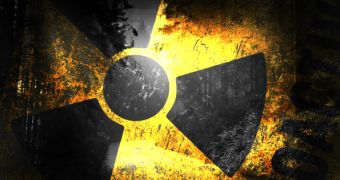A draft energy plan released by high officials in Japan a couple of days ago says that nuclear power is to be part and parcel of the country's electricity mix in the years to come.
What's more, it was announced that, should things go according to plan, not only would Japan revive its nuclear power industry, but it would also turn it into a major electricity source for the country.
Not at all surprisingly, it did not take Greenpeace all that long to lash out at the country over these plans to get nuclear reactors back online and have them meet part of Japan's overall electricity demand.
On its website, the organization points out that, ever since Japan's nuclear reactors were shut down in the aftermath of the Fukushima nuclear disaster, the country's residents have managed to make do without relying on this energy source.
What's more, things haven't been as bad as people expected them to be. Hence, the decision to restart the 48 nuclear reactors spread across Japan's territory makes little sense, Greenpeace maintains.
“For a good deal of the three years since the Fukushima nuclear disaster Japan has lived without any of its reactors operating. There have been no blackouts, people have reduced their demand and the economy is functioning,” the organization writes.
“By being nuclear free for months on end, Japan has shown it doesn't need nuclear reactors,” Greenpeace goes on to argue.
The person that Greenpeace first and foremost has a bone to pick with is Prime Minister Shinzo Abe. This is because the Minister is firmly convinced that a combination of renewables, nuclear, and fossil fuels is the best energy mix that Japan can currently hope for.
Greenpeace does not agree with the Shinzo Abe's views on the matter at hand, and says that, instead of moving to get its nuclear reactors back online, Japan should focus on investing heavily in renewables.
“The government's fixation with keeping nuclear in its proposed energy mix shows the lack of leadership of the Abe government on energy policy,” Greenpeace says.
Furthermore, “The government could show real leadership on energy policy by doing far more than it has so far to promote the development of renewables.”
In all fairness, many of the people who currently live in Japan strongly oppose nuclear power, especially because, as proven by the meltdown at the Fukushima nuclear plant, it can be quite tricky to harvest.
This means that, if Prime Minister Shinzo Abe moves forward with his plans to reopen the reactors, odds are that several protests will be organized across the country.

 14 DAY TRIAL //
14 DAY TRIAL //